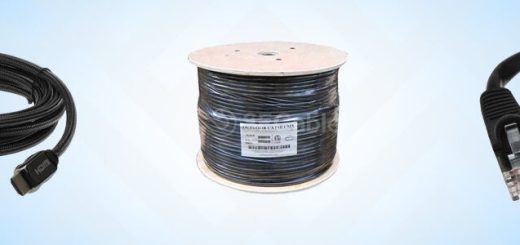XLR vs RCA: Difference is in the Use
When it comes to wiring for anything, the specifics depend on the devices involved and the overall requirement. Audio cabling, in particular, has two basic analog cables, XLR cable, and RCA cable. These are largely for very different scenarios.
The connector on the XLR cable has three pins, whereas the one on the RCA cable only has one. XLR passes balanced audio whereas RCA passes unbalanced audio. This is also where the use case bifurcates. XLR connector also has a latch on it to lock the connection in place. RCA has no such clasp.
Let’s take a look:
For a home theatre setup, you need a decent or high-end TV for display, preferably one that has an OLED or QLED panel. But the display is not the only important part of the setup. These TVs generally don’t have the best audio output for optimal movie watching. For surround sound, you can connect up to eight audio channels via RCA cables. This can make your movie-watching experience more enjoyable, with the sound of every soft footfall in a horror movie and all the notes in a musical.
If you want to edit audio, you want to be able to listen to it in stereo. Headphones that have RCA connectors are capable of handling stereo output. You will need a computer that has the left and right stereo channel RCA ports. If you are able to hear with accuracy, you will be able to make the edits accordingly.
Here, you need balanced audio. The sound mixer has audio coming in from the microphone via an XLR cable. This produces significantly less noise in the audio transfer, thus giving purer, high-quality output. This recording can go for mass-market consumption through various mediums like music streaming services, CDs, vinyl records, etc.
Podcasts have become an extremely popular way of creating content. It is so huge that there are now multiple dedicated podcast apps and big streaming platforms are putting them at the center of their revenue stream. While anyone can have a podcast, provided they have enough content, you do need decent equipment for it. Since it is a conversation or monologue based format that is just audio, you want superior-quality noiseless audio. For this, you should use XLR cabled microphones. This will give you top-notch audio, which you can then edit. As it already has less interference, you will not need to put too much effort into editing.
When it comes to any kind of live performance, whether it is a concert, a stand-up comedy show, a karaoke bar, or a quiet poetry reading, the audio needs to be clear, crisp and have no interference. Therefore, it needs XLR cables in connection with high-quality speakers. In a live performance of this sort, the speaker or singer’s utterances are of utmost importance to deliver the best experience and effect of the content.
Such differences in use cases are what really matter when it comes to the XLR cable and RCA cable. The technical differences are in their physical structuring, but to the average user, it all comes down to where to use what cable.
SF Cable has all the right audio cables that you need for any of the above-mentioned scenarios. Feel free to browse our audio-video category for the varied selection we have.


